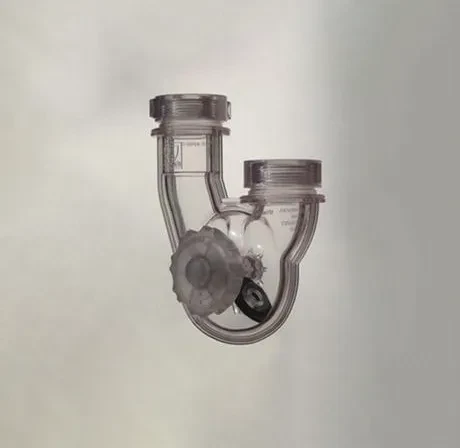
Transparent ABS (Acrylonitrile Butadiene Styrene) is a thermoplastic polymer known for its transparency and excellent mechanical properties. It is a versatile material widely used in various industries for its combination of strength, impact resistance, and transparency.
Transparent ABS is commonly used in 3D printing, specifically in the Fused Deposition Modeling (FDM) process, where it is extruded in filament form and layered to create three-dimensional objects. It allows for the production of transparent or translucent parts, making it suitable for applications where visibility or light transmission is desired.
Transparent ABS allows for the creation of clear prototypes, enabling designers and engineers to assess the form, fit, and functionality of their designs before moving to production.
The transparent nature of ABS allows for the production of visually appealing and transparent models, which are useful in presentations, exhibitions, and demonstrations.
Transparent ABS can be used to create transparent or translucent enclosures and casings for electronic devices, appliances, and consumer products. It provides a combination of strength and transparency, allowing for the visibility of internal components.
Transparent ABS can be used to manufacture light diffusers, lampshades, and other lighting fixtures. Its transparency allows for the diffusion of light while providing structural integrity.
Transparent ABS is suitable for creating display stands, signage, and promotional items. Its clarity and durability make it an ideal material for showcasing products and messages.
Transparent ABS can be used in the automotive industry for various applications such as light covers, interior trim, and transparent panels.
Artists and designers often utilize transparent ABS in the creation of art pieces, sculptures, and decorative objects. Its transparency and ability to capture light make it a versatile material for artistic expression.
| Property | Value |
|---|---|
| Pyrolysis Thermal Degradation | 210°C |
| Flexural Strength | 75.84 MPa (11,000 psi) |
| Heat Resistance | 110ºC |
| Melting Temperature | 200°C (392°F) |
| Tensile Strength | 44.81 MPa (Available Range: 25-50MPa) |
| Elongation at Break | 3-75% |
| Standard Tolerance | 0.1% With a Minimum of ± 200 µ |
| Wall Thickness | 1mm-2.5mm |
| Density | 1.01 - 1.21ρ(Mg/m3) |
| Shrinkage | 8% |